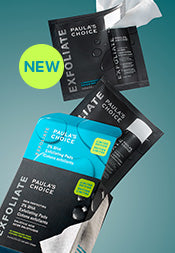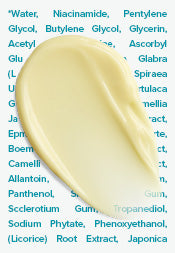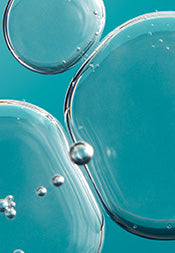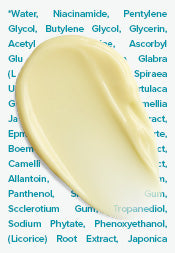What Is Probiotic SkinCare?
Probiotics are microorganisms that occur naturally within and on the body, greatly impacting skin health and overall appearance. While they are well known in the food and supplement world, using probiotics for skin (meaning applied topically) is an emerging and fascinating frontier.
It’s not as easy as buying just any “probiotic cream” on the market. In order to truly reap the benefits of probiotics in skincare, key formulary considerations must be met. We’ll walk you through the essentials of understanding probiotics so you can use them to change your skin for the better.
Why Probiotics Are Important
Probiotics encompass an ever-changing array of microorganisms living within and on the surface of our bodies. Each person has their own distinctive, ever-changing combination of these organisms, known as the microbiome. It was only recently that researchers truly started understanding the impact probiotics have on skin, acne, and other conditions.
To give you an idea of how far the research has come in a short period of time, less than 10 years ago, scientists thought people had about 200 different types of microbes living in and on our bodies; today, we know there are trillions of critters sharing space with us. Don’t let that creep you out — they play a vital role in skin’s ability to protect itself; we literally couldn’t exist without them!
Sun damage, airborne pollutants, diet, and irritating skincare products are just a few examples of what can throw the skin’s microbiome out of balance, leading to lingering issues like acne, dryness, or red, sensitive skin. For instance, we know the cause of acne is blocked hair follicles. This can be worsened by environmental factors like constant smog, leading to an increased likelihood of one either developing acne or suffering from an acne breakout.
The goal of probiotic skincare is to help restore the delicate balance that allows the good bacteria to flourish, so your skin can keep itself in peak shape. After all, you can’t get acne scars if you remove the conditions for acne to develop in the first place.
How Probiotics Benefit Skin
The surface of skin is a multifaceted environment, almost like a city of living things populating and working in every part of it, and probiotics play a crucial role in keeping it in balance.
Stabilising the microbiome helps:
- Strengthen the skin’s surface against environmental invaders.
- Enhance the skin’s ability to become — and stay — properly hydrated.
- Diminish factors that trigger sensitised, reddened skin.
- Visibly improve signs of dryness, including a tight, uncomfortable feeling.
- Restore a healthy pH balance to the skin's surface.
A 2015 study published in the International Journal of Women’s Dermatology explored the role of probiotics in the treatment of acne, among other things. Topical application of probiotics was shown to be effective in stimulating the production of healthy ceramides, which together with the restoration of healthy fats, helped to keep acne in check. It also helped to lower inflammation of the skin, one of the most distressing and uncomfortable parts of the acne experience.
It’s important to recognise that probiotics alone aren’t the answer. They work best when combined with ingredients known as prebiotics. Prebiotics naturally fuel the growth of probiotics and help them thrive so they can effectively do their job. The best probiotic moisturizer (or any other probiotic skincare for that matter), should contain both prebiotics and probiotics for optimal results.
There’s another essential part to the equation: As probiotics break down on the skin’s surface, they create other skin-beneficial substances known as postbiotics. Postbiotics include hyaluronic acid, peptides, and vitamins, all of which help diminish signs of ageing, boost hydration, and improve the skin’s healthy, vibrant tone. It’s the synergy between these “biotics” that makes all the difference when it comes to probiotic skincare.
Which Probiotics Are Good for Skin?
Research has looked at numerous probiotics for skin, acne, and other conditions, but it’s impossible to single one out as the best, considering everyone has a unique microbiome. Instead, seek out a formula that contains a mix of “biotic” ingredients (pre-, pro-, and post-) for a well-rounded approach to stabilising and maintaining your skin’s healthy microbiome. Note that very few probiotic skincare products contain living microorganisms. Adding these would not make sense because the product’s preservative system (which is necessary to protect your skin and the formula) would render them ineffective. A safe workaround is using probiotic lysates or ferments, non-living ingredients derived from probiotics that deliver many of the same benefits as the live versions.
- Proven probiotic skincare ingredients include the species Lactobacillus, Bifidobacterium, Vitreoscilla, and various ferments.
- For sources of prebiotics, look for ingredients such as xylitol, rhamnose, glucomannan, and oligosaccharides.
- For postbiotic compatible ingredients, the hyaluronic acid, peptides, and ceramides we mention above make a great statement for what probiotics can do for the skin.
- Lysate ingredients are also beneficial to probiotic skincare. As derivatives of probiotics, lysates work in tandem to help reinforce the skin’s microbiome and diminish skin issues.
It’s important to point out that probiotic lysates and ferments in skincare demand careful formulation due to their inherent instability (they’re very fragile and deteriorate easily). This means no jar packaging (light and air cause them to break down faster) and one should always buy products from brands that have a science-backed understanding of how these ingredients work. You should also look for probiotic lysates and ferments in a fragrance-free formula, as this will boost their soothing benefits.
The bottom line: Products that utilise the correct formulary techniques are essential to getting the most out of your probiotic skincare. For best results, look for a combination of “biotic” ingredients to take advantage of what their special synergy can do for all skin types. Of course, you should always consider talking to your doctor about making an acne treatment plan if you are struggling with persistent acne or regular acne breakouts. A combination of the right off-the-shelf products and prescribed medications may be what you need to get on the road to clear skin that’s free of acne scars.
Learn more about anti-ageing and wrinkle solutions.
Shop effective anti-aging skincare solutions from Paula’s Choice.
References for this information:
Experimental Dermatology, September 2019, ePublication
Journal of Investigative Dermatology, September 2012, pages 933-939
World Allergy Organization Journal, August 2017, ePublication
Nature Reviews Microbiology, June 2015, pages 85–89
Fermentation, May 2019, pages 1-17
Microbiome, June 2019, ePublication
International Journal of Molecular Science, September 2019, ePublication
Trends in Food Science & Technology, May 2018, pages 105-114
Journal of the European Academy of Dermatology and Venereology, December 2016, pages 2,038-2,047
International Journal of Women’s Dermatology, June 2015, ePublication












